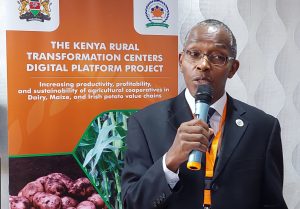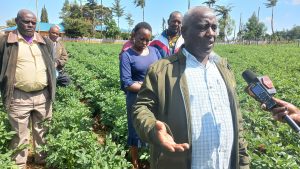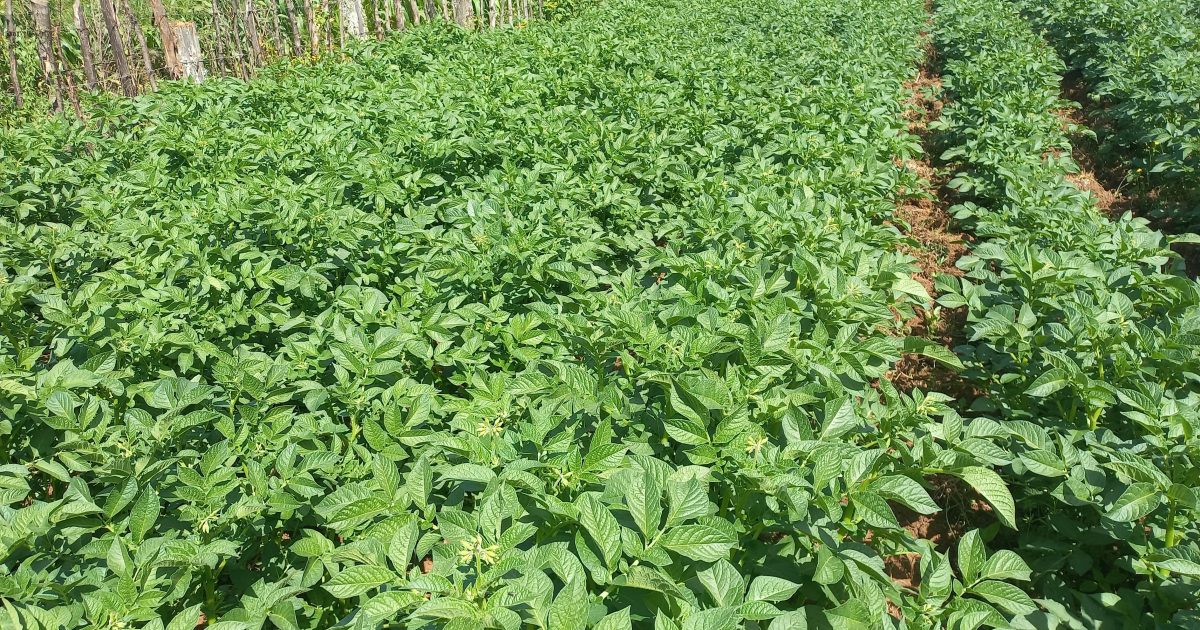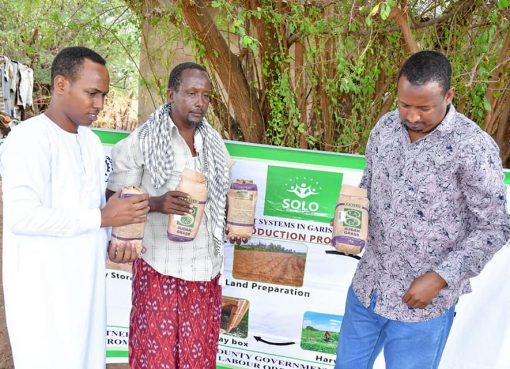The market opportunity for potato processing in the East African Community (EAC) is estimated to represent up to Ksh 120 billion (USD 1.2 billion) by 2025.
According to the National Potato Council, Potato is the second most important crop in Kenya employing about 2.5 million Kenyans and an industry therefore that needs to be protected expanded and value added for food security.
Nyandarua and Narok County potato farmers have come out to form cooperatives in order to meet the rapidly growing consumer demand and also in an organized way be able to have a bargain power in terms of prices and markets.
The Cooperative University of Kenya (CUK) has now taken a major step in transforming the agriculture landscape in four value chains that includes the potato.
Through a programme they are running dubbed “Kenya Rural Transformation Centers Digital Platform (KRTCDP)’, a pioneering initiative aimed at enhancing farmer connectivity, combating market cartels, and bolstering farmer incomes, the University is set to leverage infrastructure to facilitate seamless interactions between farmers and stakeholders across the agriculture value chain
CUK Vice- Chancellor Prof Kamau Ngamau says through KRTCDP project, small holder farmers will gain unprecedented access to vital services, including input suppliers, agro-dealers, and pertinent public resources.
He affirmed ongoing collaborations with numerous cooperatives, poised to support farmers engaged in key value chains targeted by this project in areas of Irish potatoes, maize and dairy.
The KRTCDP project is in line with the Nation’s development plan, which is, to revive and make the agriculture sector profitable and sustainable for better livelihoods and resonates well with new National Government’s Agriculture Sector Transformation and Growth Strategy (ASTGS) 2019-2029 which lays out the Special Economic Processing Zones to implement in Kenya to harness agricultural development.
David Kimotho, chairman of Green Silver Cooperative said when they started in 2016 coming from a self-help group known as Good Times with a membership of only 56 members, they did not know that forming the cooperative was the best thing that would have happened for potato farmers in Dundori area,
“Our numbers have now increased to 500 members. We have been producing potatoes in our farms and looking for a good market collectively and also doing contract farming for different potato varieties depending on the market preference”, he said
Kimotho said accessing quality and affordable fertilizer is becoming a challenge despite the government selling to them subsidized fertilizer which all farmers cannot access due to long distance from the farmers to the distribution areas.
Beth Wangari, a potato farmer in Dundori, Nyandarua County and who has been producing potatoes for the last 15 years says that the sector has been dwindling as the cost of production has been going up year in, year out.

Wangari who has been a member of the Green Silver Cooperative attributed this to the high cost of fertilizer, certified potato seedlings, and labor but added that the burden is becoming less after most farmers from her areas joined the cooperative and this has benefitted some of them through access to loans.
“Through cooperative society, I am able to get a loan to buy certified seeds, fertilizer, and pesticides,” she said but added more so her benefits are coming from the aggregation of the produce they get where they are able to sell as a group, and this has seen them be able to determine the price and negotiate better with the market players.
Wangari explains that green silver cooperative has been looking for market for their produce but also sign contracts with major players in the potato sector and this has helped most of them rid of middle men and thus get good money for their produce.
“We are doing well right now but the weather patterns changing is affecting our production and I want to urge the County and National Governments together with other stakeholders to support farmers in investing in irrigation so that we are able to have a crop throughout the year”, Wangari said
Joseph Ngugi, a potato farmer and member of the Lanyuak Farmers Cooperative Society Limited, Narok North in Narok County said that joining cooperatives has seen them receiving training from the National Potato Council of Kenya (NPCK), the Kenya Agricultural and Livestock Research Organization (KALRO), and the Narok County Government in order to improve their produce
Besides the training, Ngugi said the 20 members also benefited from exchange visits to other potato farmers in other potato growing Counties, attended exhibitions and expos and with the knowledge received they are now growing potato seedlin

gs with technical support and training from the Kenya Plant Health Inspectorate Services (KEPHIS).
“For the first season, we started on half an acre and we planted the Shangi potato variety that his high yielding. In the second planting season, we planted the Kenya Mpya variety, which we received from the Narok County government,” he said.
He added that the group has continued to expand the acreage under potato farming and also increase the membership to the current number of more than 1,200 potato farmers in the cooperative society and are now selling Irish potato seedlings at between Ksh 2,700 to Ksh 3,700.
“Members get to benefit from quality potato seedlings which have been certified by the Kenya Plant Health Inspectorate Services (KEPHIS) at affordable prices, members of the cooperative society buy it at Ksh 500 less and in a good season a farmer can harvest between 70 and 150 of (50kg) bags from one acre if using certified seeds.
Prof Wycliffe Oboka, Director of the Institute of Cooperative Development at the Cooperative University of Kenya, says the KRTCDP project platform is going to afford farmers the advantage of being able to know who will supply them with inputs, at what prices, different services that are being offered and be able to scan the environment on the best markets
Professor Ken Waweru, Director of Research and Innovation at the Cooperative University of Kenya (CUK), said they are collaborating with the national and county governments in the areas where the project is being implemented.
Nyandarua County potatoes farming is the main source of food, income, employment and source of revenue. Out of 100,000 ha of land under potato cultivation in Kenya, 17,500 ha which is 17.5 percent are in Nyandarua County.
By Wangari Ndirangu




